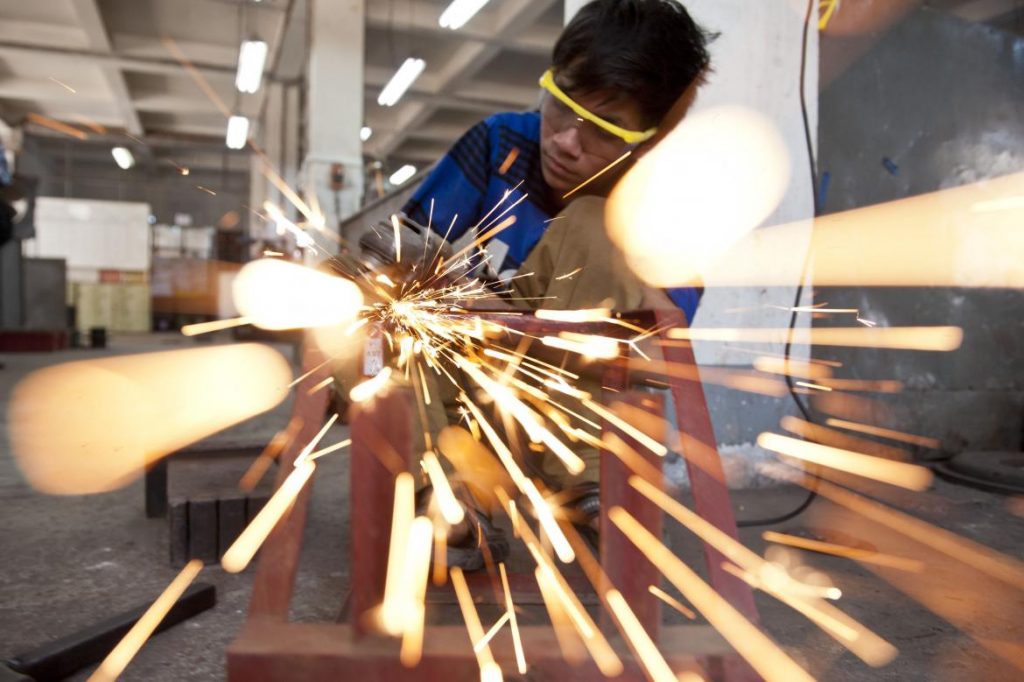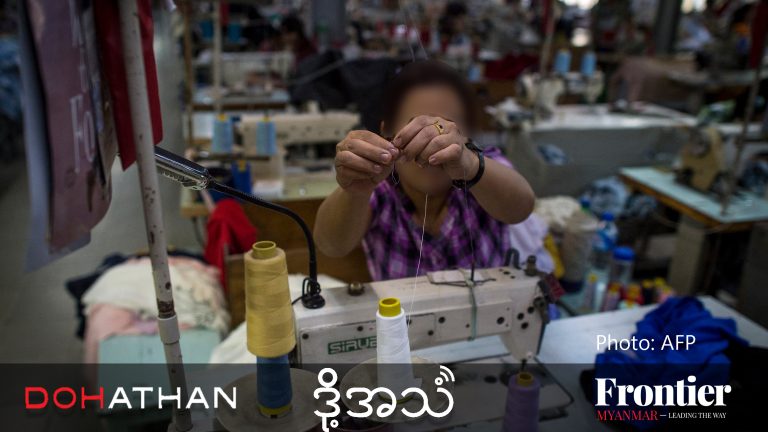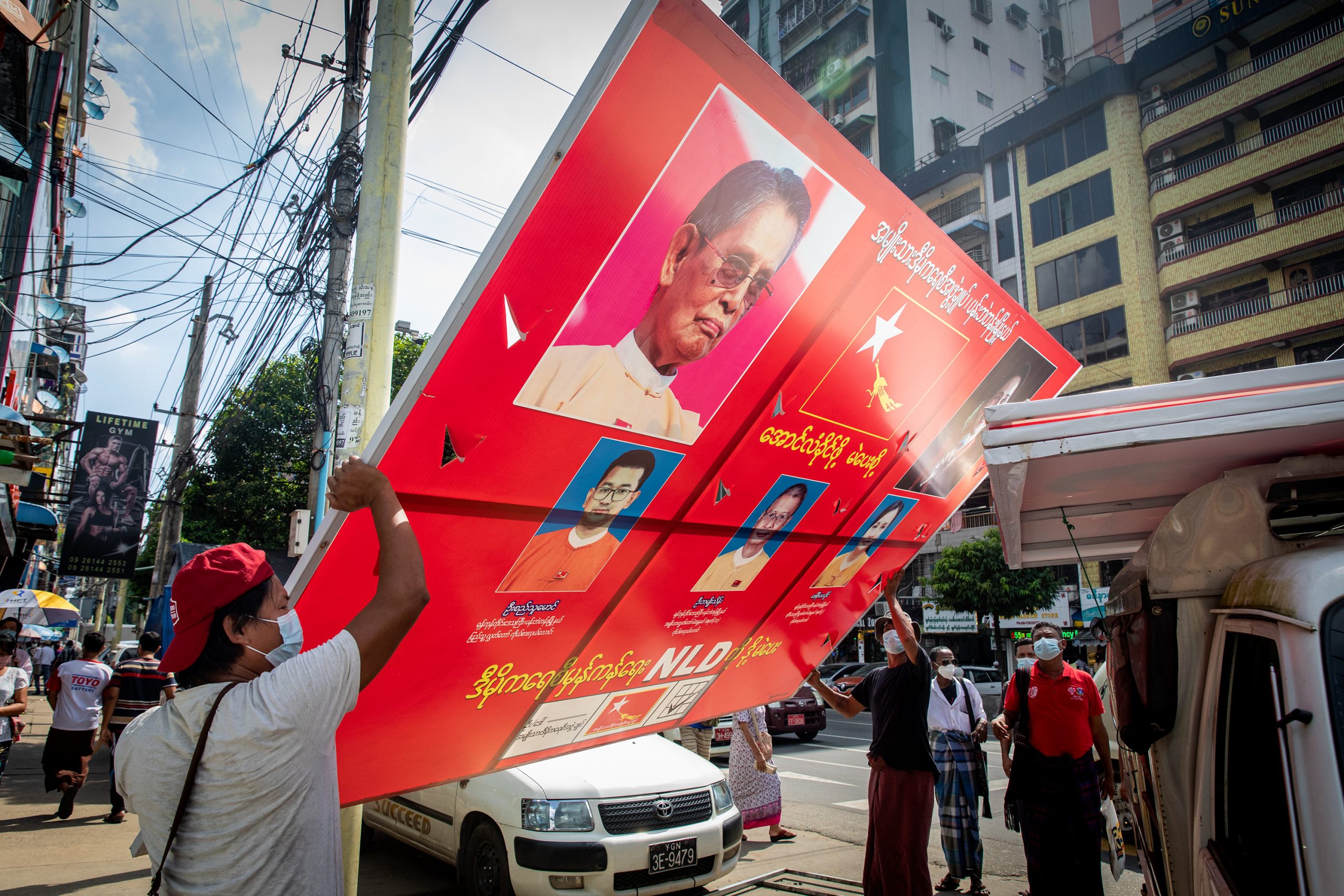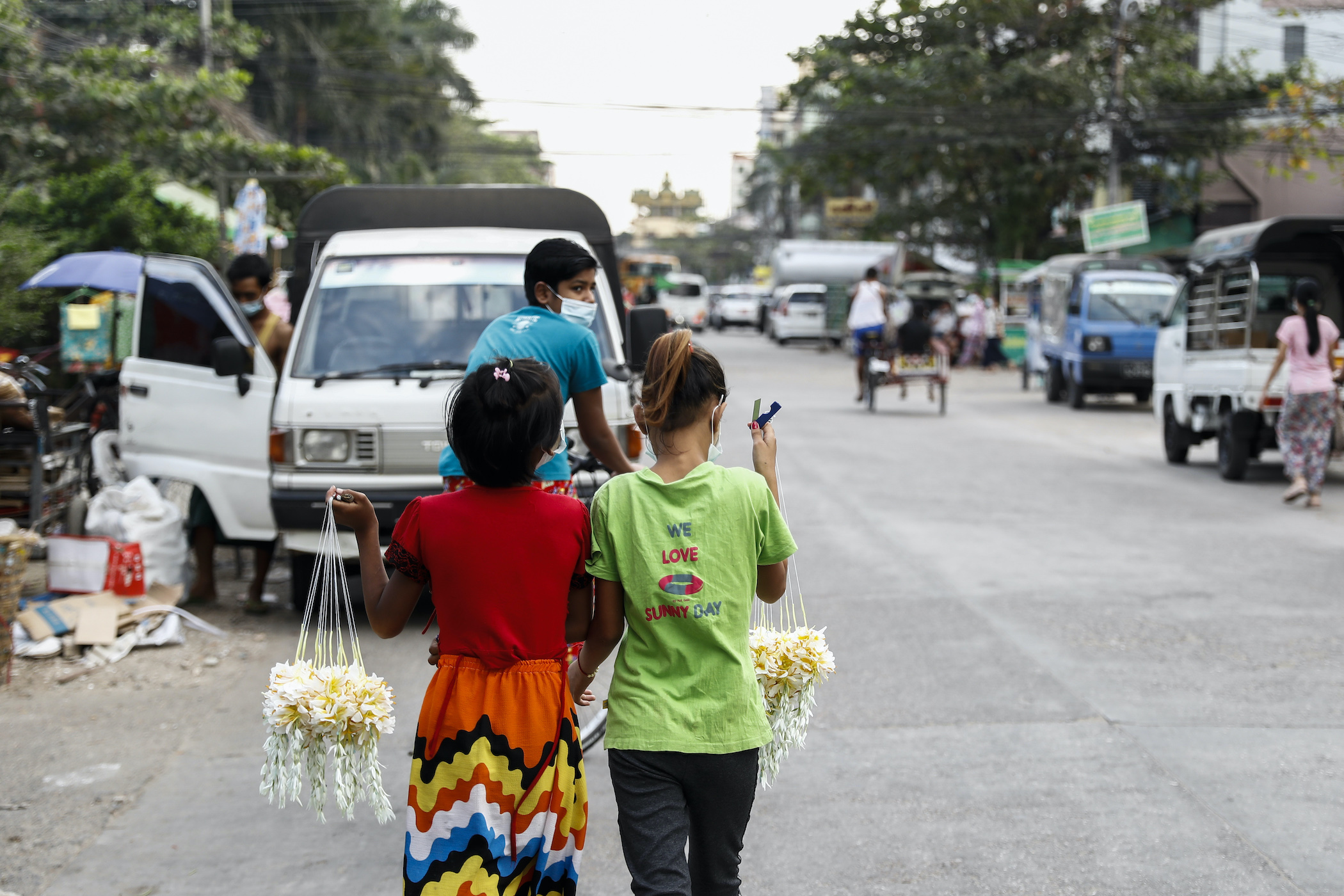By NYAN HLAING LYNN | FRONTIER
NAY PYI TAW — Lawmakers have suspended operations and new investment at 33 loss-making government-owned factories in an effort to trim the budget deficit.
The Public Accounts Committee had recommended that 44 factories from the Ministry of Industry and Ministry of Electricity and Energy be temporarily shuttered, but lawmakers on March 15 agreed to allow 11 to remain in operation.
The measure is expected to save in excess of K100 billion (US$73 million), even though staff will continue to receive their salaries while the factories are closed.
The parliament and government have agreed to form a committee with a wide range of members to examine the factories and make a decision on their long-term future.
Support more independent journalism like this. Sign up to be a Frontier member.
“We understand suspension is not the [long-term] answer,” said U Aung Min, vice chair of the Pyidaungsu Hluttaw Joint Public Accounts Committee.
He said that if the study can find ways to reform the factories so they can contribute to the country then they will be allowed to resume operations.
“It will be decided whether [factories should] cooperate with private parties or utilise foreign investment or technology or continue on their own,” he told reporters after the session.
It was unclear when the study would begin or how long it would take.
Minister for Industry U Khin Maung Cho said, “We welcome the proposal to stop investment in suspended factories and study what should be done about those factories.”
Earlier, during a discussion on the National Planning Bill for 2017-18, which outlines the government’s economic plans and priorities for the fiscal year, lawmakers had proposed cutting support to lossmaking factories and reallocating the funds to community development projects.
All NLD lawmakers who discussed the national plan on March 10 supported ending funding to the factories, many of which have sustained heavy losses.
“The 44 large state-owned factories should stop for the time being because they are not economically viable and may not do any good for the country and the people,” said Daw Thiri Yadana (NLD, Mon-12).
“A decision should only be made after they have all been properly reviewed,” she said.
Although many state-owned enterprises have been privatised or shut down, they continue to be a major drain on the state budget.
Citing government figures, the World Trade Organization said in 2014 report that SOEs consume 75 percent of the state budget and incur annual losses of around 5 percent of GDP. In current terms, that would be the equivalent of more than K4.174 trillion a year (US$3 billion) – about the size of the government’s budget deficit.
More recent figures from the Open Myanmar Initiative paint a slightly less bleak picture. In 2016-17, state-owned enterprise expenditures accounted for about 39.7 percent of the budget, or over K8.2 trillion, and generated almost 38.5 percent of income, or around K8 trillion.
But some Union Solidarity and Development Party lawmakers cautioned against making large cuts to funding for state factories, including former Minister for Industry U Maung Myint.
Maung Myint (Pyithu Hluttaw, Mingin) said on March 10 that MPs should not make the “wrong decision” on state enterprises based on their “philia or phobia”.
“A decision that considers the interests of citizens without neglecting staff [of state-owned enterprises] is needed,” said Maung Myint, who took over as Minister for Industry from U Soe Thane in July 2013. “Problems [at state enterprises] cannot be solved just by stopping the construction of a factory. I think MPs would already know that.”
He cited the case of the No 1 Steel Mill in Myingyan, which is being built by the Ministry of Industry. According to the ministry’s website, the mill is being built in three phases, between 2010 and 2019, at a total cost of 1 billion euros ($1.07 billion).
“If the budget is not given to complete the project, interest will still have to be paid on the loans,” he said.
He said the sooner the projects were implemented and manufacturing began the better it would be for the country.
Another USDP lawmaker, U Thein Tun (Pyithu Hluttaw, Kyaunggon), said that because large amounts had already been invested in the projects it made sense to continue rather than suspend or cancel them.
But he said a closer examination of the individual projects was needed before making a final decision on whether to suspend them
Factories to continue
Ministry of Industry
No 24 Heavy Industry (Dagon)
Asbestos (Hmawbi)
No 35 Heavy Industry (Chauk)
No 36 Heavy Industry (Kyaukse)
No 22 Heavy Industry (Bilin)
No 4 Textile Factory (Pwintbyu)
Home Appliance Factory (Minsu)
Ministry of Electricity and Energy
No 1 Fertiliser Plant (Salay)
No 4 Fertiliser Plant (Myaung Tagar)
No 5 Fertiliser Plant (Kangyidaunt)
No 2 Liquified Gas Plant (Minbu)
Suspended Factories
Ministry of Industry
No 14 Heavy Industry (Thagara)
No 15 Heavy Industry (Thagara)
No 16 Heavy Industry (Sinte)
No 17 Heavy Industry (Malana)
No 1 Steel Mill (Myingyan)
No 2 Steel Mill (Pang Pet)
No 21 Heavy Industry (Thaton)
Rubber Factory (Thingangyun)
No 23 Heavy Industry (Nyaung Chedauk)
No 26 Heavy Industry (Thagara)
No 32 Heavy Industry (Kyangin)
Glass Factory (Pathein)
Plastic Factory (Kyaukse)
No 1 Textile Factory (Shwedaung)
No 3 Textile Factory (Sagaing)
No 3 Textile Sub-factory (Sagaing)
No 5 Textile Factory (Pakokku)
No 6 Textile Factory (Salingyi)
No 6 Textile Sub-factory (Monywa)
No 7 Textile Factory (Myittha)
No 8 Textile Factory (Pyawbwe)
No 8 Textile Sub-factory (Yamethin)
No 10 Textile Factory (Taung Tha)
Textile Sub-factory (Myingyan)
High-grade Paper Mill (Thabaung)
Newsprint Mill (Thabaung)
Hydrogen Oxide Plant (Chauk)
Ministry of Energy and Electricity
No 1 Refinery (Thanlyin)
No 2 Fertilizer plant (Kyun Gyaung)
No 3 Fertiliser Plant (Kyaw Swa)
No 3 Petroleum Gas Plant (Kyun Gyaung)
Methanol Plant (Sinte)
Department of Petrochemical Transport and Distribution







